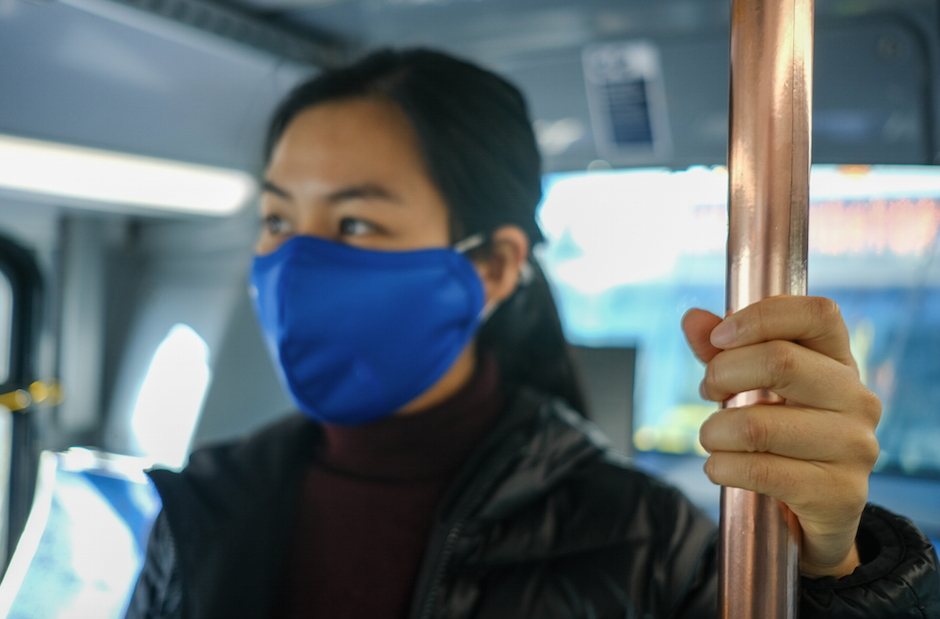
The pilot is the result of a partnership between TransLink, Teck Resources, Vancouver Coastal Health (VCH), the University of British Columbia (UBC), and the VGH & UBC Hospital Foundation. The initial phase was fully funded by Teck, as part of its Copper & Health program. The second phase will also be supported by Teck.
Tests were conducted using surface cultures and ATP bioluminescent testing on samples taken from transit surfaces. Throughout the first phase of the trial, more than 1,140 samples were collected and analyzed.
Two products that performed best in a transit environment are the copper decals and the copper nickel plasma sprays
The pilot’s second phase will include testing copper products on more train cars and buses; testing over a longer amount of time to analyze varied conditions; focused tests on the products that were most effective in our transit environment and public engagement to measure copper’s impact on customer confidence.
TransLink was the first transit agency in North America to test copper on transit surfaces. The pilot was launched as part of TransLink’s covid-19 response through the Safe Operating Action Plan because of preceding studies showing that copper is both durable and effective at killing bacteria.
The two products that performed best in a transit environment are the copper decals and the copper-nickel plasma sprays, Teck said in media release.
Copper is the only solid metal touch surface registered as a public health product by Health Canada and the U.S. Environmental Protection Agency, proven to naturally eliminate up to 99.9% of bacteria and viruses.
“Through our Copper & Health program, Teck has been working with healthcare professionals, academia and others to help make communities safer with copper,” Don Lindsay, Teck CEO said.
“We look forward to continuing to work with TransLink and all the partners and working to expand the use of copper on public high-touch surfaces to protect human health.”




